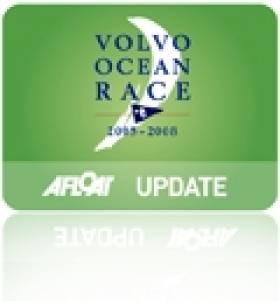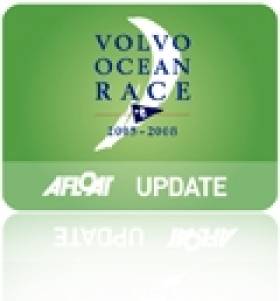Displaying items by tag: retire
Puma Retires After Dismasting
The team has recovered all pieces of the mast and all sails from the water. They are currently headed toward the island of Tristan da Cunha.
"We've just withdrawn from the leg," said skipper Ken Read. "We have [the mast] jury rigged – we have about 15 feet of mast left. We have our trysail and storm jib awkwardly set. We're supplementing that with really low revs of the engine just to make forward progress.
"As you can imagine, there aren't a lot of smiles right now, but one way to make it even worse would be to proclaim that there wasn't a chance to make the next leg.
"This is about earning points in this race. We think by sacrificing points on this first leg, it gives us a chance to actually earn points for the second leg and the In-Port Race. So, that's our goal.
"We have all of our fantastic PUMA shore team, the BERG team and of course Volvo all trying to sort it out right now, giving us the help that we need to get to Cape Town in order to make repairs and be ready for the next leg."
PUMA was in second position in the first leg of the race, sailing from Alicante, Spain, to Cape Town when the mast broke. The causes of the dismasting are not known at this stage.
PUMA Ocean Racing's shore team is working on a recovery plan to ensure the yacht can rejoin the race as soon as practically possible and will work closely with Volvo Ocean Race to determine the cause of the dismasting.
Volvo Ocean Race control is in contact with the team to establish the full extent of the damage and ensure the crew are given full support to enable them to deal with the situation.
Abu Dhabi Retire from Leg One
#VOLVOOCEANRACE – Abu Dhabi Ocean Racing has retired from Leg 1 of the Volvo Ocean Race today in almost windless conditions having returned to racing early on Thursday following their dismasting on the first night. Wexford's Justin Slattery is part of the nine man Abu Dhabi crew under skipper Ian Walker.
The decision leaves four of the fleet of six still racing the first stage, the 6,500-nautical mile leg from Alicante, Spain to Cape Town. Team Sanya also pulled out after suffering substantial damage to the boat's hull on Sunday.
An Abu Dhabi Ocean Racing spokesperson said: "Despite the heroics performed by the shore crew in getting our yacht Azzam re-masted after it was damaged last week in high seas and strong winds, the team believes that the estimated arrival time in Cape Town would be counter-productive for its preparations for Leg 2, especially given the almost windless prevailing weather conditions in the Mediterranean.
"Azzam's mast and rigging system have not been compromised and the decision is purely one of time management."
Abu Dhabi Ocean Racing will now sail to Lisbon, Portugal with an expected arrival time of Saturday evening. Azzam will then be shipped to Cape Town to arrive around November 28.
The decision will give the team suitable time to ensure the boat and the team are 100 percent ready for the Cape Town In-Port Race on December 10.
"Abu Dhabi Ocean Racing is steadfast in its commitment to return to the race from Cape Town," the spokesperson said.
Abu Dhabi's shore crew worked around the clock to replace a mast broken in three places on Saturday night, around six hours after the leg start, when the boat crashed into a huge wave while sailing in the Mediterranean towards Gibraltar.
Skipper Ian Walker explained: "Since dismasting shortly after the start on Saturday our team and Future Masts have worked tirelessly to fit our spare mast and examine the cause of the original mast failure.
"We need time to make modifications to our rigging system in Cape Town and the only way we can gain that time is to travel to Cape Town by ship. This has been one of the hardest decisions of my life to make but I have to consider not only the safety of the crew but the long term interests of the project."
The British double Olympic silver medallist continued: "This is only the first leg of a long race and with this decision and a lot of hard work we can be race ready for Leg 2.
"I am particularly sad as this is my favourite leg of the race and the whole crew had been looking forward so much to it. I wish all the teams left in the leg fair winds and we will be there to greet them in Cape Town."

























































